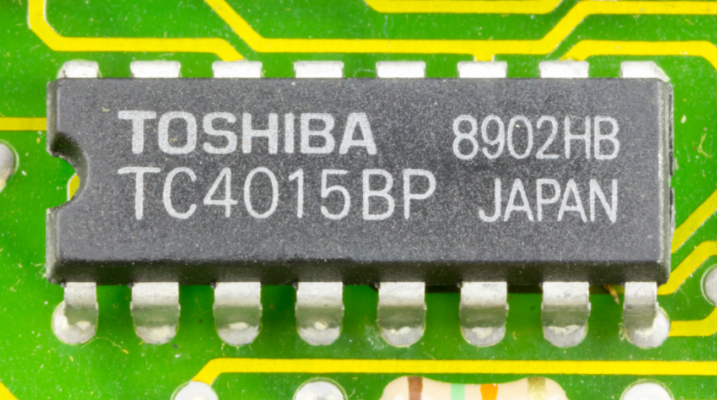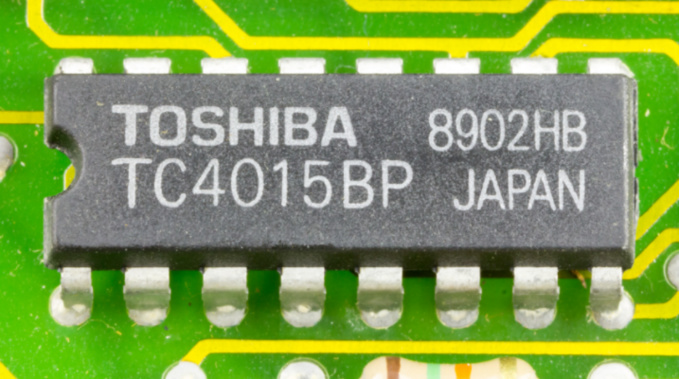In the spring of this year, Toshiba’s shareholders voted to allocate a division for the production of NAND memory chips to an independent company, which was the first step to selling the business.
The conglomerate put the key business to the auction as losses of Westinghouse, the American division of Toshiba, which is engaged in nuclear energy, were growing. Westinghouse filed for bankruptcy in accordance with Chapter 11 of the US Bankruptcy Code. Toshiba’s losses, associated with Westinghouse Electric’s activities, reached almost $ 7 billion.
The Japanese corporation has been choosing a customer for Toshiba Memory for more than eight months. Several times the media wrote that the decision had almost been made, but Toshiba always deceived investors' hopes for various reasons. The transaction amount had been repeatedly revised: after one of the parties increased the deal offer, the other party also hurried to respond by raising the offer for the Japanese company’s semiconductor business.
SK Hynix Inc., Foxconn Technology Group., Western Digital Corp and Micron Technology Inc were listed among the most active bidders. Direct investment funds Bain Capital, Silver Lake Partners and KKR & Co also expressed interest in buying the business.
At some point, Apple and Amazon also wanted to buy Toshiba's microchip units, Japanese NHK television channel reported. According to the channel’s information, Apple was ready to spend several billion dollars to purchase a 30% share of Toshiba Memory.
Position of the Japanese authorities remains the main obstacle for the semiconductor business deal. Under Japanese law, all transactions related to transfer of important Japanese technologies to foreign companies can be blocked by the government of the country. To obtain permission for Tokyo to purchase the production of chips from Toshiba, Taiwanese company Foxconn called its partner, Japanese corporation Sharp, for help.
Ultimately, the struggle revealed two main contenders - American Western Digital and a consortium of investors led by Bain Capital. Toshiba would not want to sell its business to Western Digital, since the latter wants to have a significant stake in it, and the antimonopoly authorities may delay the deal in this case. Some Toshiba executives were initially against the deal, but changed their position after the American company promised not to participate in the semiconductor business’ management after the purchase and limit its share in it to a maximum of 33%.
Such conditions could suit everyone. The media then reported that the concern’s CEO Steve Milligan arrived in Tokyo to conclude a definitive agreement with Toshiba.
Western Digital planned to buy Toshiba Memory with financial support of American private investment firm KKR & Co., the Japanese state investment fund Innovation Network Corp. of Japan and the Development Bank of Japan. The buyer offered to pay 1.9 trillion yen ($ 17.3 billion) for the semiconductor business. Western Digital itself was ready to pay $ 1.37 billion through convertible bonds.
Yet, Toshiba still concluded an agreement to sell its semiconductor business Toshiba Memory with a consortium of investors led by Bain Capital. Today, Bloomberg, referring to informed sources, said that Apple's consortium accepted terms of the deal offered by Bain Capital. Soon after, Toshiba made an official announcement about sale of the business.
"SK hynix will be prohibited to access Toshiba Memory Corporation (TMC)’s technological information, which is the property of the company," - the Japanese company said in a press release. Toshiba also warned that share of SK hynix in business could not exceed 15% under the terms of the agreement.
South Korean chip maker SK Hynix allocates 395 billion yen ($ 3.5 billion) and will control 49.9% of the purchased semiconductor unit together with Bain Capital. Share of Toshiba itself will be 40.2%, and 9.9% of the shares will be acquired by Hoya, another technology company from Japan, the Associated Press reports.
It was also noted that SK Hynix will partially finance the transaction through the purchase of convertible bonds worth 129 billion yen ($ 1.14 billion), which can then be converted into shares. Taking this into account, share of SK Hynix in Toshiba Memory can amount up to 15%.
source: ap.org
The conglomerate put the key business to the auction as losses of Westinghouse, the American division of Toshiba, which is engaged in nuclear energy, were growing. Westinghouse filed for bankruptcy in accordance with Chapter 11 of the US Bankruptcy Code. Toshiba’s losses, associated with Westinghouse Electric’s activities, reached almost $ 7 billion.
The Japanese corporation has been choosing a customer for Toshiba Memory for more than eight months. Several times the media wrote that the decision had almost been made, but Toshiba always deceived investors' hopes for various reasons. The transaction amount had been repeatedly revised: after one of the parties increased the deal offer, the other party also hurried to respond by raising the offer for the Japanese company’s semiconductor business.
SK Hynix Inc., Foxconn Technology Group., Western Digital Corp and Micron Technology Inc were listed among the most active bidders. Direct investment funds Bain Capital, Silver Lake Partners and KKR & Co also expressed interest in buying the business.
At some point, Apple and Amazon also wanted to buy Toshiba's microchip units, Japanese NHK television channel reported. According to the channel’s information, Apple was ready to spend several billion dollars to purchase a 30% share of Toshiba Memory.
Position of the Japanese authorities remains the main obstacle for the semiconductor business deal. Under Japanese law, all transactions related to transfer of important Japanese technologies to foreign companies can be blocked by the government of the country. To obtain permission for Tokyo to purchase the production of chips from Toshiba, Taiwanese company Foxconn called its partner, Japanese corporation Sharp, for help.
Ultimately, the struggle revealed two main contenders - American Western Digital and a consortium of investors led by Bain Capital. Toshiba would not want to sell its business to Western Digital, since the latter wants to have a significant stake in it, and the antimonopoly authorities may delay the deal in this case. Some Toshiba executives were initially against the deal, but changed their position after the American company promised not to participate in the semiconductor business’ management after the purchase and limit its share in it to a maximum of 33%.
Such conditions could suit everyone. The media then reported that the concern’s CEO Steve Milligan arrived in Tokyo to conclude a definitive agreement with Toshiba.
Western Digital planned to buy Toshiba Memory with financial support of American private investment firm KKR & Co., the Japanese state investment fund Innovation Network Corp. of Japan and the Development Bank of Japan. The buyer offered to pay 1.9 trillion yen ($ 17.3 billion) for the semiconductor business. Western Digital itself was ready to pay $ 1.37 billion through convertible bonds.
Yet, Toshiba still concluded an agreement to sell its semiconductor business Toshiba Memory with a consortium of investors led by Bain Capital. Today, Bloomberg, referring to informed sources, said that Apple's consortium accepted terms of the deal offered by Bain Capital. Soon after, Toshiba made an official announcement about sale of the business.
"SK hynix will be prohibited to access Toshiba Memory Corporation (TMC)’s technological information, which is the property of the company," - the Japanese company said in a press release. Toshiba also warned that share of SK hynix in business could not exceed 15% under the terms of the agreement.
South Korean chip maker SK Hynix allocates 395 billion yen ($ 3.5 billion) and will control 49.9% of the purchased semiconductor unit together with Bain Capital. Share of Toshiba itself will be 40.2%, and 9.9% of the shares will be acquired by Hoya, another technology company from Japan, the Associated Press reports.
It was also noted that SK Hynix will partially finance the transaction through the purchase of convertible bonds worth 129 billion yen ($ 1.14 billion), which can then be converted into shares. Taking this into account, share of SK Hynix in Toshiba Memory can amount up to 15%.
source: ap.org



















